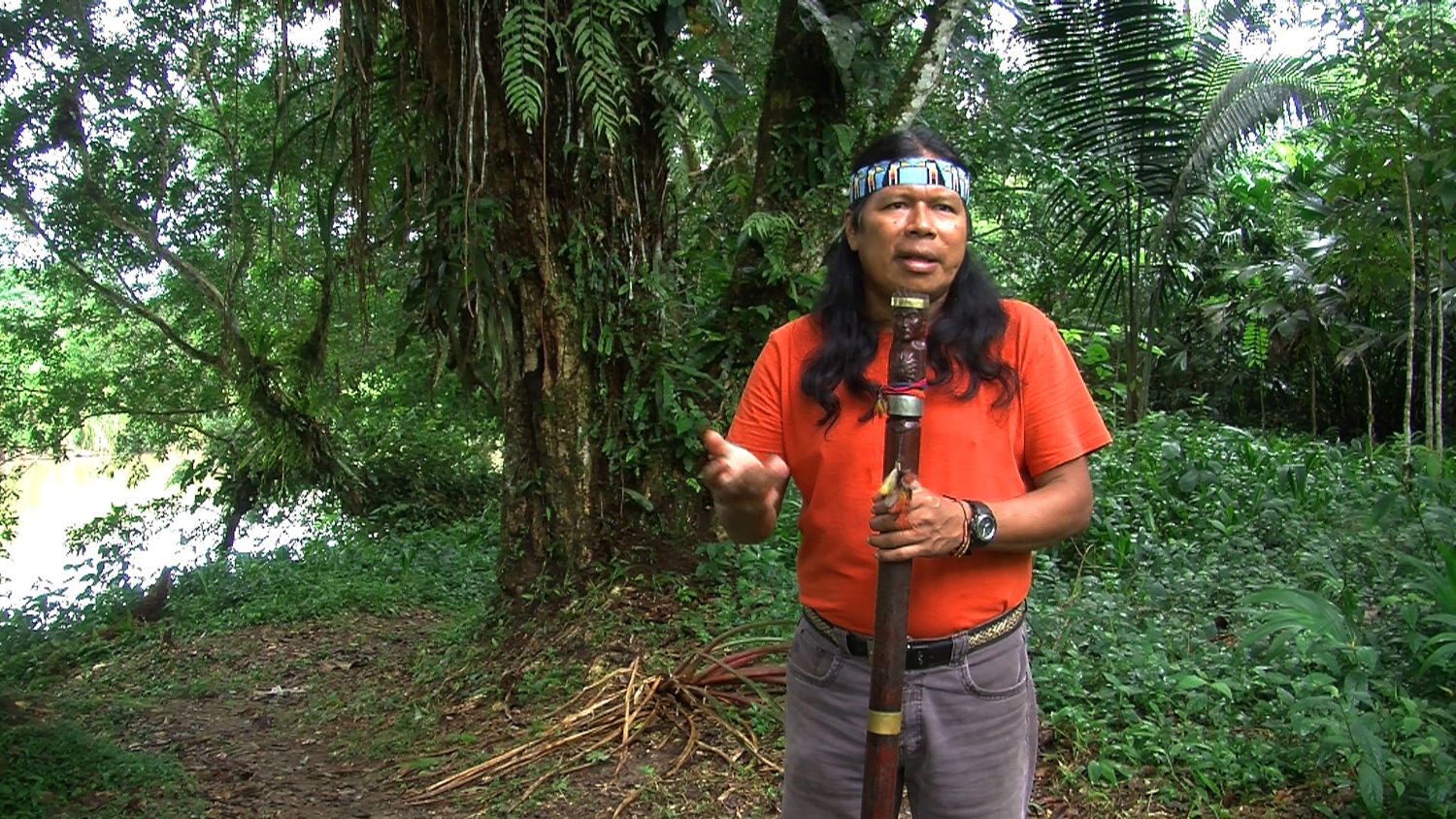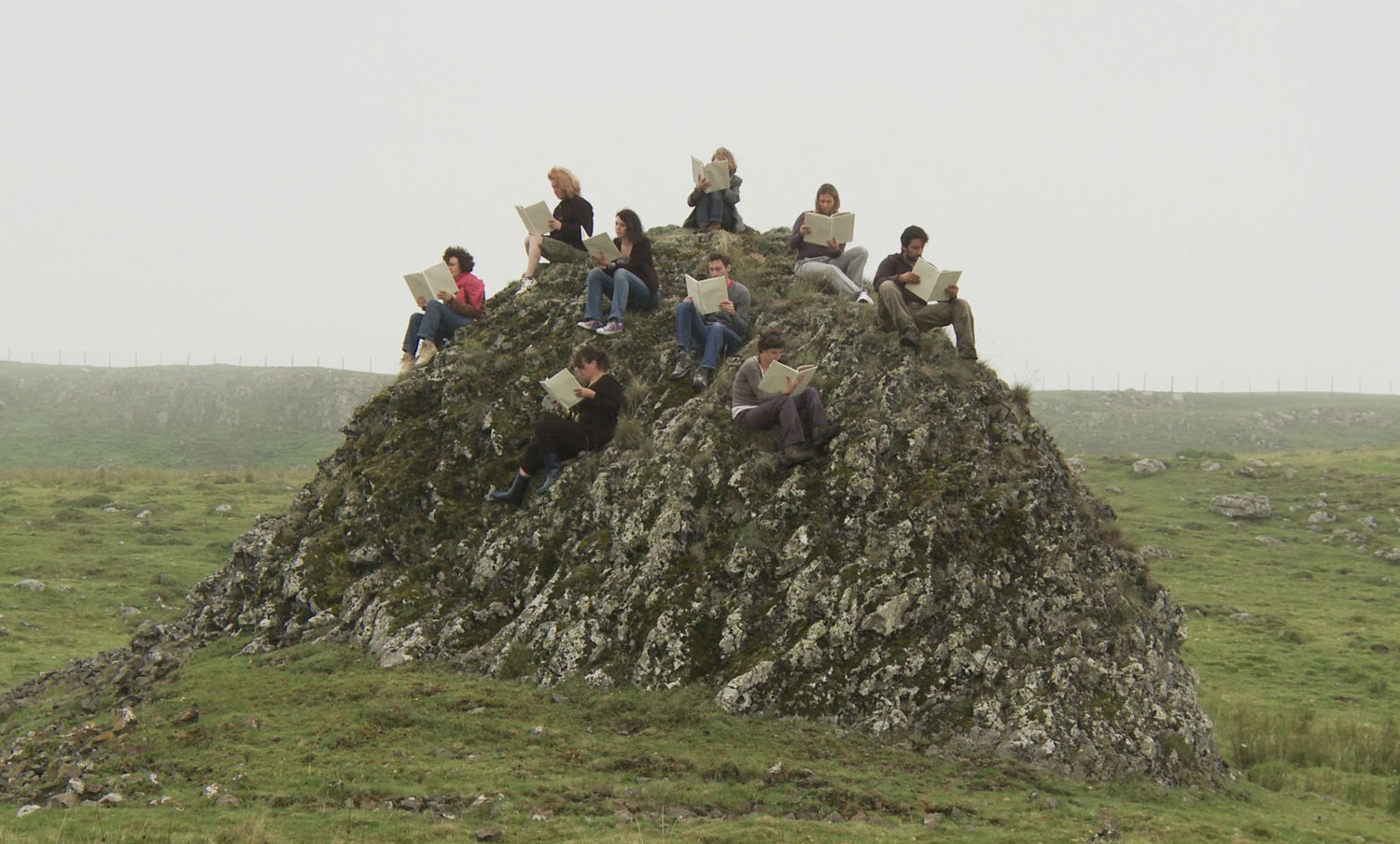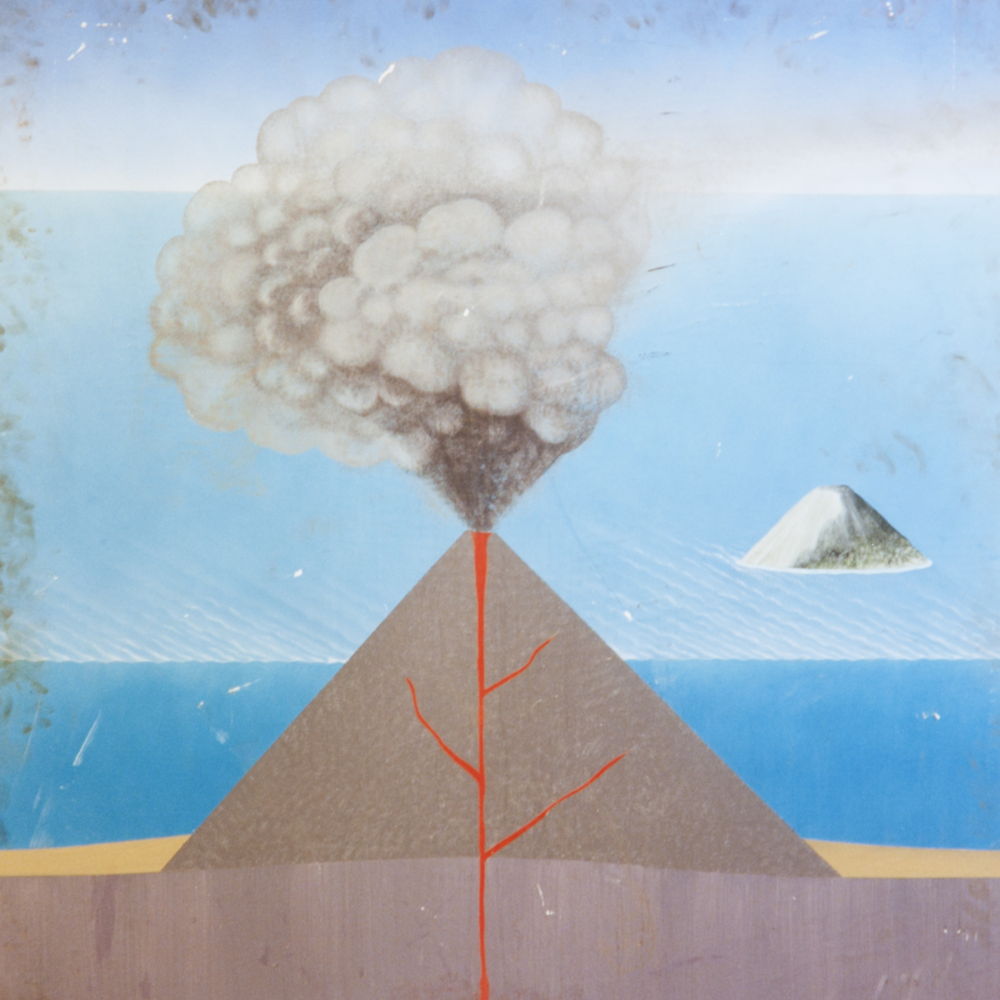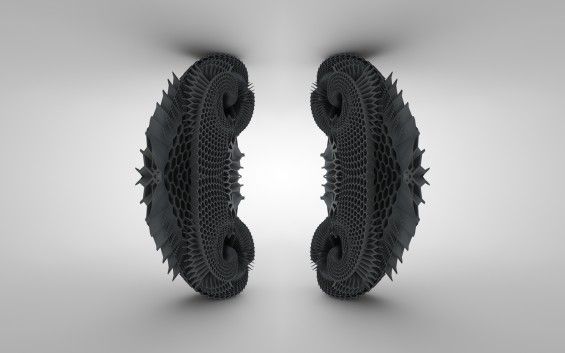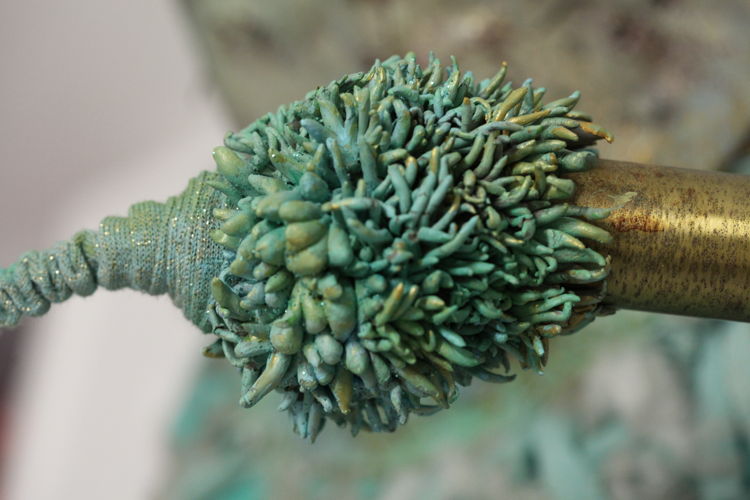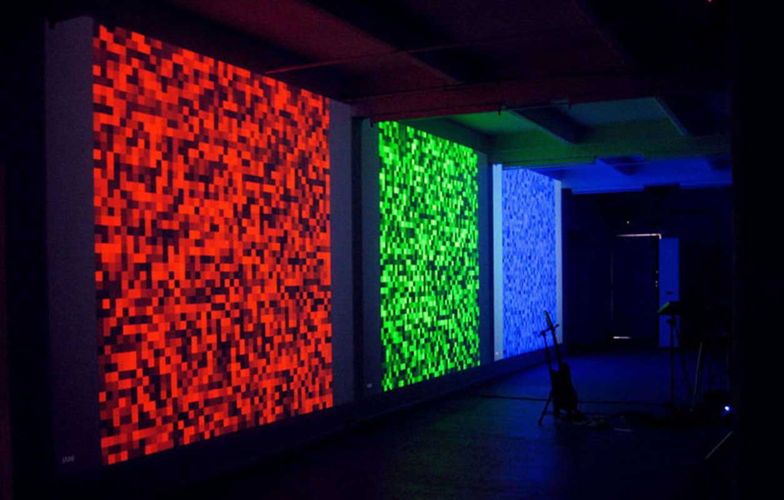PRESS RELEASE - 500 Years of Utopia inspires Leuven (Belgium) to organise a major city festival and international exhibition.
LEUVEN 24.09.2016 >< 17.01.2017
2016 marks exactly 500 years since the English humanist and statesman Thomas More published in the city Leuven his world-famous book Utopia. Leuven is celebrating this milestone with a major city festival featuring exhibitions, street art, film, music, theatre, dance, literature, lectures and city walks. The cornerstone is the international, art historical exhibition ‘In Search of Utopia’ at M - Museum Leuven. The festival will officially start on Monday, 26 September 2016 after a festive opening weekend on 24 and 25 September and will end on 17 January 2017.
MAJOR EXHIBITION AT M - MUSEUM LEUVEN
20.10.2016 >< 17.01.2017
The cornerstone of the festival is the prestigiousinternational loan exhibition ‘In Search of Utopia’ at M - Museum Leuven. Visitors will meet Thomas More and his friends, the ideals and fantasies that inspired the minds of artists, the desire for searching out distant horizons, and the new web of science that was gradually being woven across reality.
Exceptional artworks by 15th- and 16th-century Flemish masters such as Jan Gossaert, Quinten Metsys and Simon Bening will be brought together in an exciting and intriguing tale about the search for and dreams about the ideal world. Works by other masters of the Northern Renaissance such as Hans Holbein and Albrecht Dürer will also be present in the exhibition. The masterpieces include unique paintings, miniatures, tapestries and astronomical instruments that will be presented together for the very first time. Prof. Dr. Jan Van der Stock (University of Leuven), who was previously responsible for the spectacular opening exhibition at M - Museum Leuven about Rogier van der Weyden, will also curate this exhibition.
SOME HIGHLIGHTS FROM THE FESTIVAL PROGRAMME
24.09.2016 >< 17.01.2017
Only a stone’s throw from M - Museum Leuven, the University Library of Leuven is organising a parallel exhibition that sheds light on the context and influence of Thomas More’s Utopia and the Utopian library.
The programme also features a fundamental pillar of contemporary art. The Contemporary Art Committee of the University of Leuven is organising the exhibition ‘Tracing the Future’, which will provide insights into the way in which artists interpret the concept of ‘utopia’ nowadays. The selected works subtly refer to failed utopias of the past and at the same time raise awareness about pressing social or ecological themes. The French-Moroccan artist Yto Barrada is presenting an exhibition at M - Museum Leuven. Various historical heritage locations throughout the city will also be hosting a group exhibition with work by the internationally renowned artists Ursula Biemann & Paulo Tavares, Martin Le Chevallier, The Otolith Group and Adrien Tirtiaux.
In the Fablab laboratory of the University of Leuven, several artists will use the latest technologyto explore the boundaries of their ‘utopia’. The tour ‘Ex Vitro’ on the outskirts of Leuven, around the Arenberg Castle and internationally renowned research institute Imec, will present original work by Frederik De Wilde, Stefaan Quix, Michaël Roskam and Bas Smets, created in and with Fablab.
Another highlight is the international documentary ‘Back to Utopia’ by Fabio Wuytack, who is best known for his documentary about the famous shipping company Red Star Line. 500 hundred years later, viewers are taken back to the mysterious island.
The complete programme will be available on the website www.utopialeuven.be from April 2016.
|
Leuven, a powerful magnet On 16 December 1516, Flanders’ very first printer, Dirk Martens, was hard at work in the house the Gulden Toirtse, on the corner of Naamsestraat and Standonckstraat in Leuven. A brand-new book was hot off the press. The English statesman and humanist Thomas More had written a visionary work entitled Utopia. Or as it was known in full: A golden book, no less beneficial than humorous, about the ideal republic and about the new island Utopia. More describes an ideal society that a traveller discovered somewhere on an island. The fact that a highly esteemed English humanist published his book in Leuven was no coincidence. In More’s day, the cream of European intelligentsia came together on the banks of the Dyle river. It was thanks to the mediation of his good friend Erasmus, who maintained a close connection to the university town, that Utopia was printed in Leuven. Its tremendous worldwide impact made Utopia a new word, a new artistic and social concept and the most influential book in the Low Countries. |
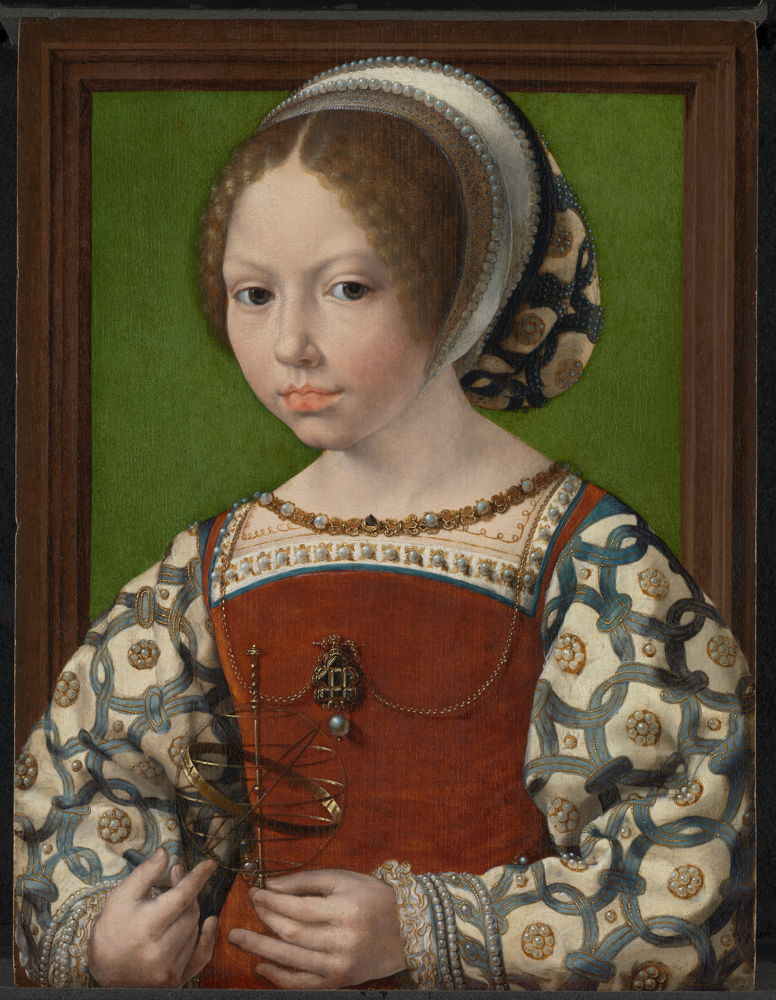 ‘In Search of Utopia’ © © Jan Gossaert, A Young Princess (Dorothea of Denmark?), c. 1530, The National Gallery, London.
‘In Search of Utopia’ © © Jan Gossaert, A Young Princess (Dorothea of Denmark?), c. 1530, The National Gallery, London.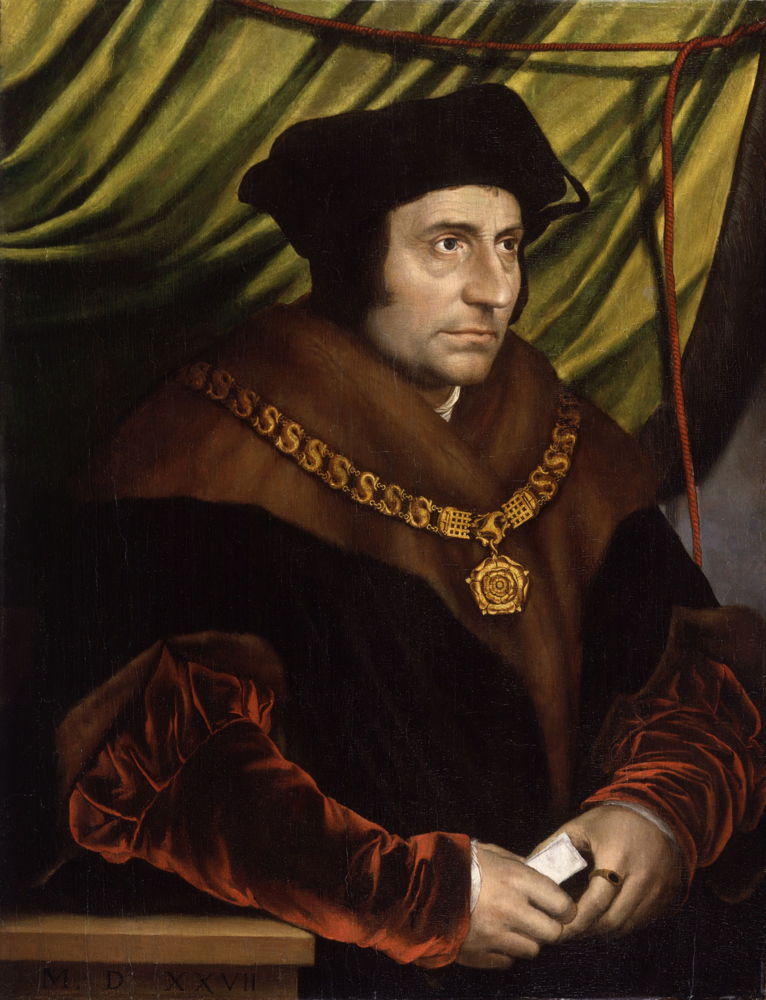 ‘In Search of Utopia’ © © Hans Holbein the Younger (after), Portrait of Thomas More, 1527. National Portrait Gallery, London.
‘In Search of Utopia’ © © Hans Holbein the Younger (after), Portrait of Thomas More, 1527. National Portrait Gallery, London.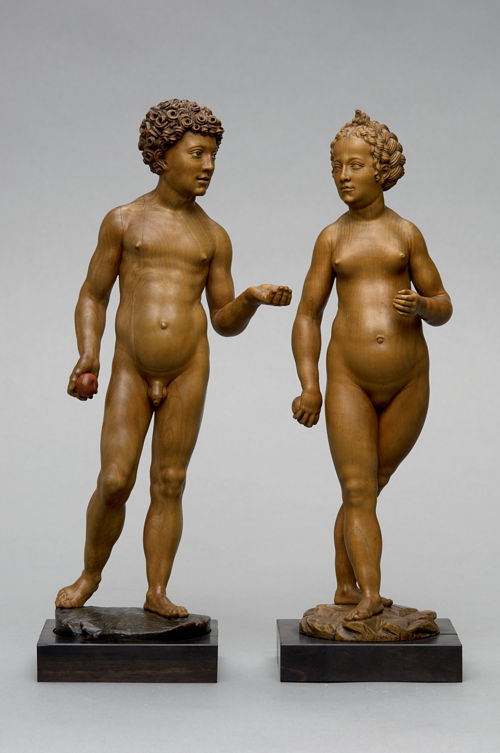 ‘In Search of Utopia’ ©
© Conrat Meit, Adam and Eve, after 1530. Kunsthistorisches Museum, Vienna.
‘In Search of Utopia’ ©
© Conrat Meit, Adam and Eve, after 1530. Kunsthistorisches Museum, Vienna.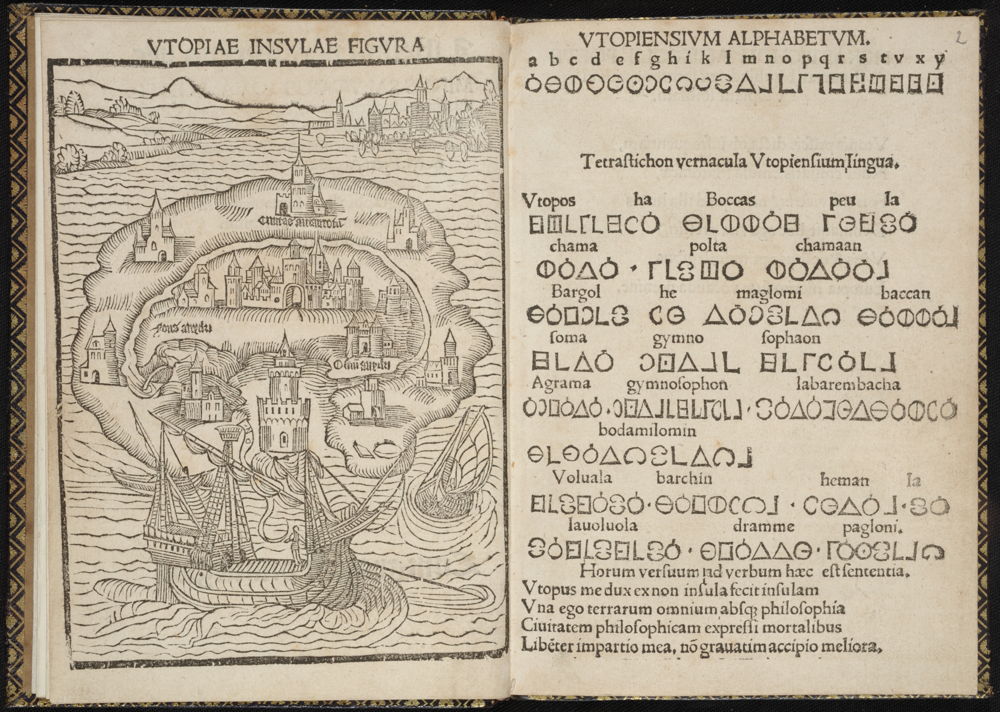 ‘In Search of Utopia’ © © Thomas Morus, Libellus de… insula Utopia, 1518. University Library – Tabularium, Leuven.
‘In Search of Utopia’ © © Thomas Morus, Libellus de… insula Utopia, 1518. University Library – Tabularium, Leuven.